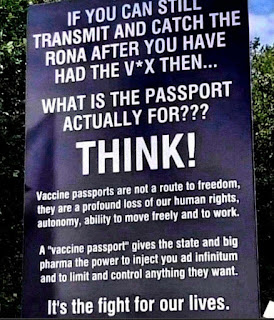There's a room where the light won't find you
Holding hands while the wall come tumbling down
When they do, I'll be right behind you
--Tears for Fears
The chaos that has erupted in Afghanistan following the abrupt removal of remaining American forces by Joe Biden has fostered no shortage of finger pointing. Republicans, especially, smell political blood in the water. Their howls range from "America has been completely embarrassed" to "Biden should resign."
These rants may be justified on some levels, particularly in light of what has transpired over the past year and a half. But, as Ron Paul notes in a more or less "I told you so" rant of his own, many of these same politicians created the Afghan mess to start with.
Meanwhile, most Democrats are predictably circling the wagons around Biden. He did the right thing, Dems claim, by taking us out of an unpopular war. And, indeed, prior to the chaos polls had suggested that nearly 70% of American opposed US presence in Afghanistan and wanted us out.
As a matter of fact, I was one of them.
At the end of the day, I suspect the problem that most Americans, and perhaps many across the globe, have with what is going on is not the intent but the execution. As Ron Paul observes, the 20 year campaign of terrorist fighting and nation-building in Afghanistan had been counterproductive for years. Most people saw the writing on the wall.
The Trump administration seemed to understand this. Trump had begun the process of unwinding in-country military commitments but stopped short of complete withdrawal based on advice that it wasn't quite time to do so yet.
Reports are circulating that the Biden Administration ignored similar advice. Rather than continuing a measured withdrawal, Biden decided to pull out cold turkey. Unfortunately, the political vacuum created by his hasty action has cost many lives, with more surely to come. It has also cost Biden a pile of political capital.
Which brings me to my main point. There was a time where I might have done things like Biden did here. I used to think that if I were in charge, then I would end every government-sponsored program--immediately.
But now I know better.
When government intervenes anywhere--overseas in military ops such as Afghanistan, or in domestic affairs such as welfare and healthcare redistribution, it distorts human behavior and interaction. These distortions create dependencies and other commitments that cannot quickly be reversed should those interventionary policies no longer garner political support.
As Biden's actions have demonstrated, trying to reverse these dependencies quickly is likely to create considerable pain. Retrospectively, a more measured phase out may have been more sensible--and more humane.
Biden might have told his administration, the media, and people in the US and Afghanistan, that the US would be out of Afghanistan in, say, two years. He could have demanded phased withdrawal plans from the military and other advisors in the early days of his administration, and then shared the plans with all stakeholders. Those plans could have included key dates, goals, measures of progress along the way.
And to be fair, Trump could have done the same thing.
Similar measured exits could be designed for every bloated government-sponsored program on the books. Social Security, Medicare, welfare, etc. For example, Social Security payments might be phased out over the course of four, eight, or ten years.
Do measured withdrawals from government programs cost more? Perhaps, but perhaps not given the potential cost associated with chaotic withdrawal. Is it possible that a measured withdrawal never happens--given the proclivity of institutionalized bureaucracies to stifle change? For sure. Will they be politically unpopular with large voting blocs that benefit from the largesse? Without question.
However, I can't help but think that the transparency of a well communicated gradual exit strategy executed by determined leadership would be an effective, and fair, way to back out of trillion$ in government largesse.
Let's also note this. If we don't proactively back out of commitments, particularly those with massively upside down economics, then market forces will do it for us at some point. And when they act, market forces are likely to do so quickly.
Biden's handling of the Afghan situation therefore serves as a harbinger of the chaos likely to ensue in other domains if we do not learn from mistakes made here and initiate programs of measured reversal.








